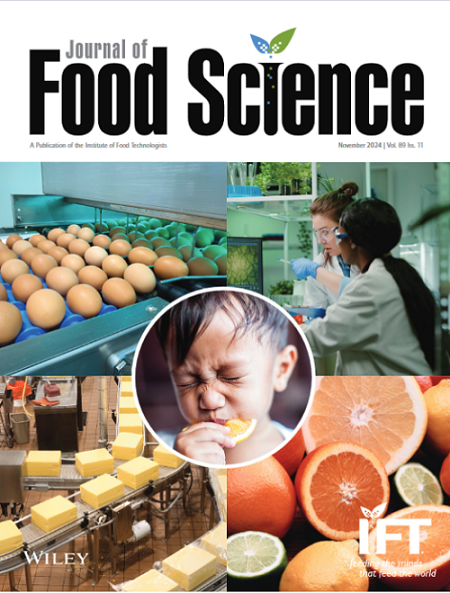Effect of Phlebopus portentosus Polysaccharide on Retrogradation of Corn Starch
Abstract
There are relatively few studies on the mechanism of using edible fungus polysaccharides to inhibit starch retrogradation. This study investigated the influence of Phlebopus portentosus polysaccharide (%PBP, as a function of amount of corn starch [CS]) on the retrogradation properties of CS. The gelatinization characteristics and thermodynamic analysis results revealed that PBP addition increased gelatinization temperature, significantly decreased the disintegration and recovery values (p < 0.05), inhibited amylose leaching, and reduced swelling power. When 4% w/w PBP was added, the percentage of CS retrogradation decreased after being stored at 4°C for 7 days. The smaller the degree of retrogradation degradation, the more significant the inhibitory effect on starch retrogradation. Infrared spectrum analysis demonstrated that no new covalent bonds had formed between PBP and CS. Moreover, the R1047/1022 and R995/1022 ratios significantly decreased (p < 0.05), indicating that PBP affected both short- and long-term retrogradation and exhibited an inhibitory effect. Overall, 4% PBP exerted a significant inhibitory effect on starch retrogradation, providing a theoretical basis for the development of edible fungus polysaccharides in starch-based food.





 求助内容:
求助内容: 应助结果提醒方式:
应助结果提醒方式:


